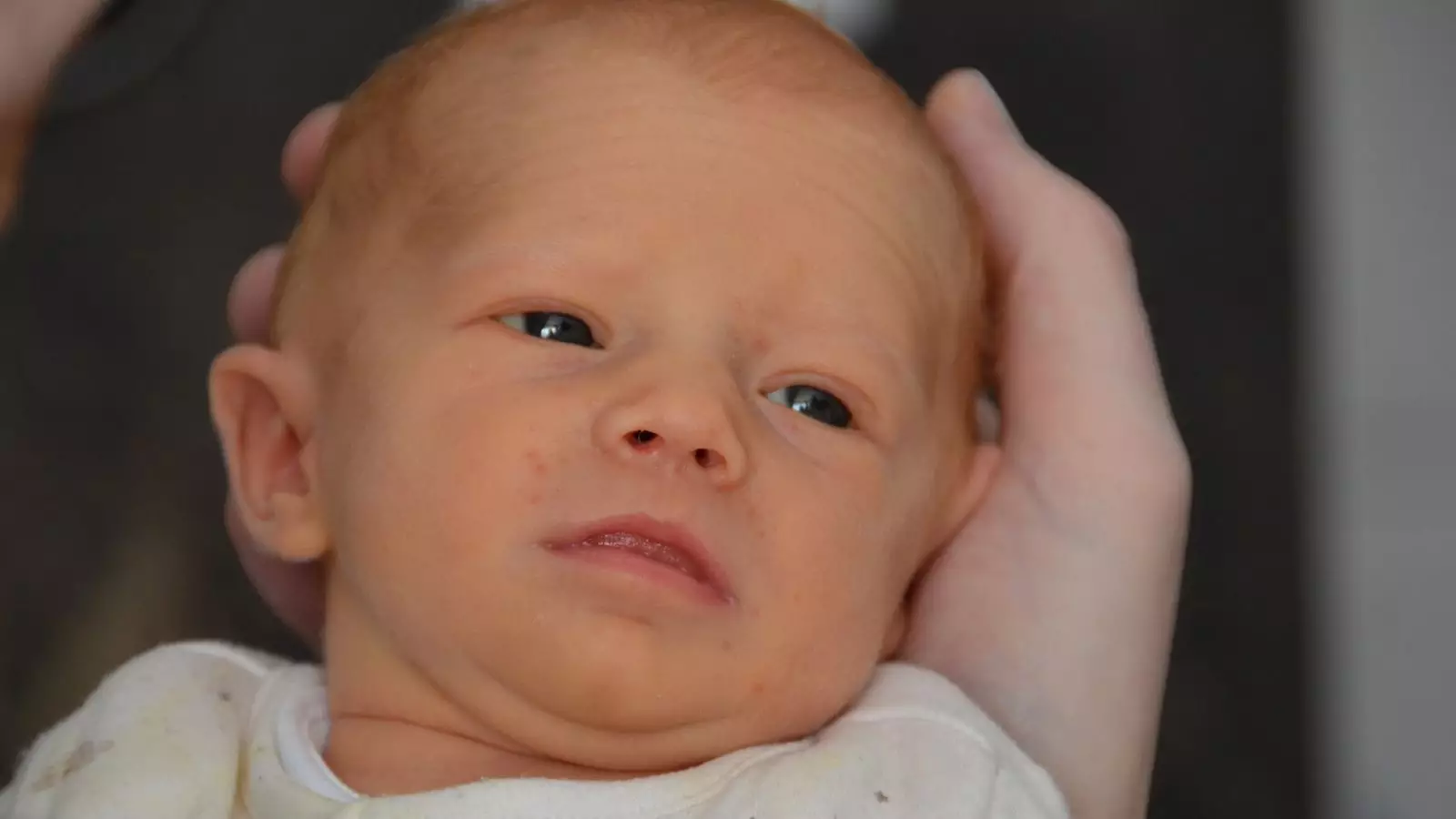In a world constantly chasing innovation, the story of Grace Davidson and her sister Amy Purdie stands as a significant beacon of hope, illuminating the transformative potential of modern medicine. The landmark birth of Amy Isabel, the first baby in the UK born from a womb transplant, is not merely a medical achievement; it is a poignant narrative of sisterhood, sacrifice, and the relentless pursuit of family. This monumental event reshapes how we perceive infertility and reproductive healthcare, particularly for women faced with challenges stemming from rare conditions like Mayer-Rokitansky-Kuster-Hauser (MRKH) syndrome.
Grace Davidson’s personal journey toward motherhood, characterized by insurmountable hurdles, resonates deeply in an era where reproductive choices remain a fractious topic. The emotional weight of her experience cannot be understated. Women grappling with the reality of an absent or non-functional uterus convey a profound societal challenge: the right to bear children should not be restricted by anatomy. Davidson’s case exemplifies how modern advancements—through scientific rigor and familial support—can redefine these boundaries, offering a new narrative where hope, healing, and happiness converge.
A Gift of Life: Sisterly Sacrifice
Grace’s story is not just about a medical procedure; it is a testament to the lengths one sibling will go for another. The decision by Amy Purdie to donate her womb for her sister transcends love; it encapsulates the ultimate act of generosity. This incredible act of selflessness speaks volumes about human kinship and signifies a new dimension in the conversation about organ donation. While various organ transplants make headlines, the transplantation of a womb is fraught with ethical, emotional, and medical complexities that provoke necessary discourse around autonomy, consent, and familial responsibility.
The intricate details of the procedure illuminate its complexities and underline a grim reality: the risks involved are substantial. From surgical intervention to the emotional turmoil accompanying pregnancy following such a transplant, Davidson and her family faced a circus of fears and uncertainties. Yet, it is through this lens of vulnerability that we find the rich tapestry of human resilience. Their journey is a reminder that despite formidable challenges, hope can flourish.
Beyond the Journey: An Aspirational Tale for Thousands
The enchanting birth of little Amy Isabel transcends the walls of a hospital room; its implications reverberate through the lives of countless women who have faced similar struggles. The significance of this birth serves as a clarion call to society, one that beckons us to reexamine our understanding of reproductive rights. No longer can we hide behind archaic narratives that define womanhood solely by motherhood. Instead, this groundbreaking achievement offers a lifeline—an invitation for open discussions surrounding women’s health, fertility options, and the progressive landscape of reproductive technology.
It is essential to address the ramifications of this surgery on policy and healthcare systems. Womb transplantation has the potential to become a standard procedure within reproductive health options, yet it comes with the caveat of accessibility. How do we ensure that groundbreaking medical advancements aren’t confined to the privileged? For those who may not have the financial means or support structures like Davidson’s, the question of equity looms large. The disparities in health outcomes are stark and need immediate attention. Policy-makers must aspire to create inclusive, equitable models in healthcare that recognize all women’s need for reproductive autonomy.
A New Medical Frontier
As the pioneering surgeons responsible for this daring and intricate surgery, Professors Richard Smith and Isabel Quiroga, have forged a new frontier in medicine that could alter the lives of innumerable women. The emotional impact of witnessing the fruits of their labor—the moment Grace first held her baby—cannot be overstated. It serves as a reminder that medical professionals have the power to rewrite destinies. Their biting observations about the complexities and stress of the procedure further underline that while science can achieve miraculous feats, it thrives on the foundation of emotional investment and human connection.
The world should embrace this progressive step in reproductive healthcare, both for its medical implications and the social commentary it incites. As we celebrate Grace Davidson’s family’s triumph, we must also ensure that the conversation continues—holding space for those still navigating the daunting waters of fertility challenges. This unprecedented success births a movement toward advocating for comprehensive care, inclusion, and conversation, ushering in an era where the narrative of motherhood can transcend biological limitations.


Leave a Reply